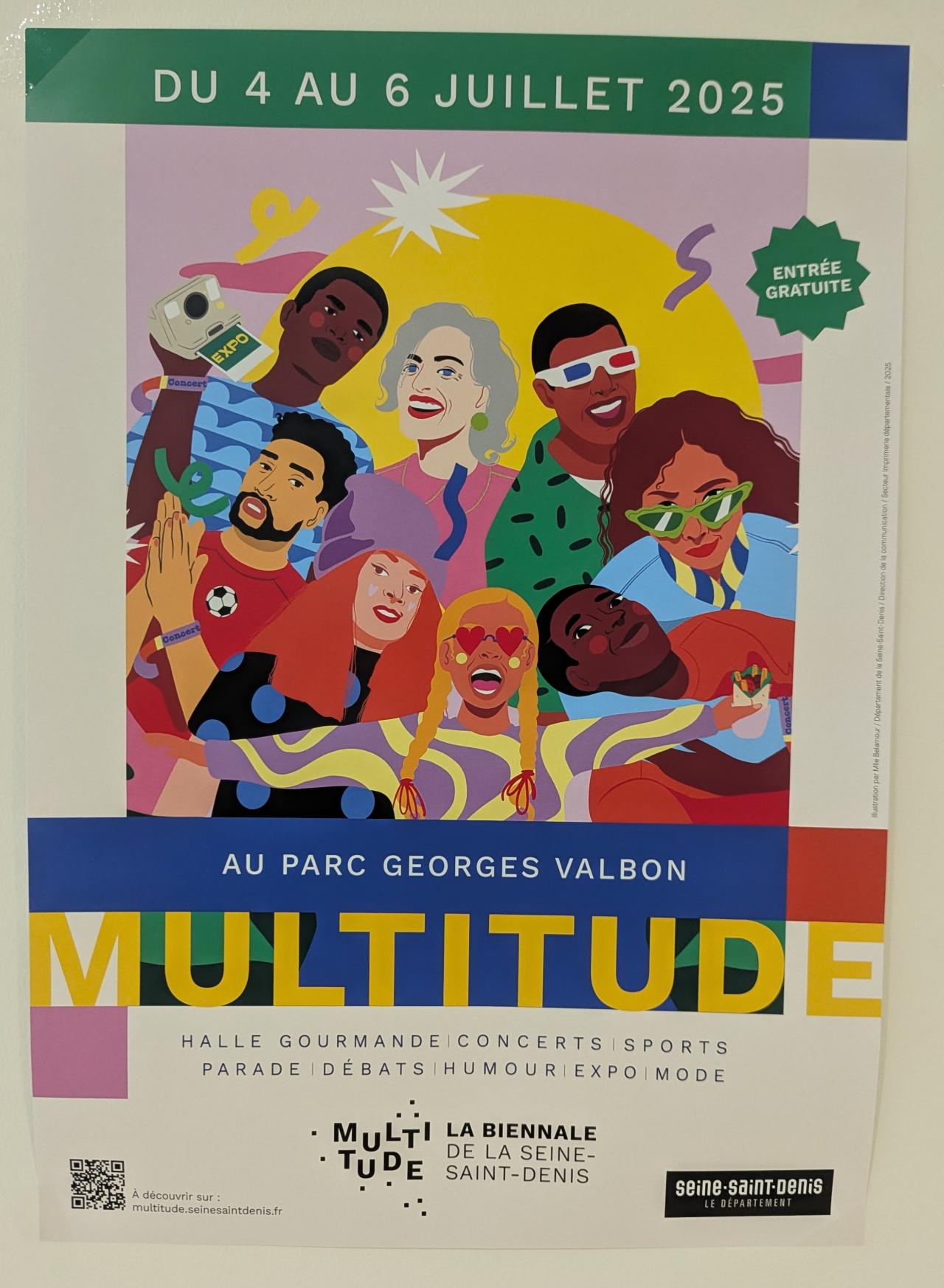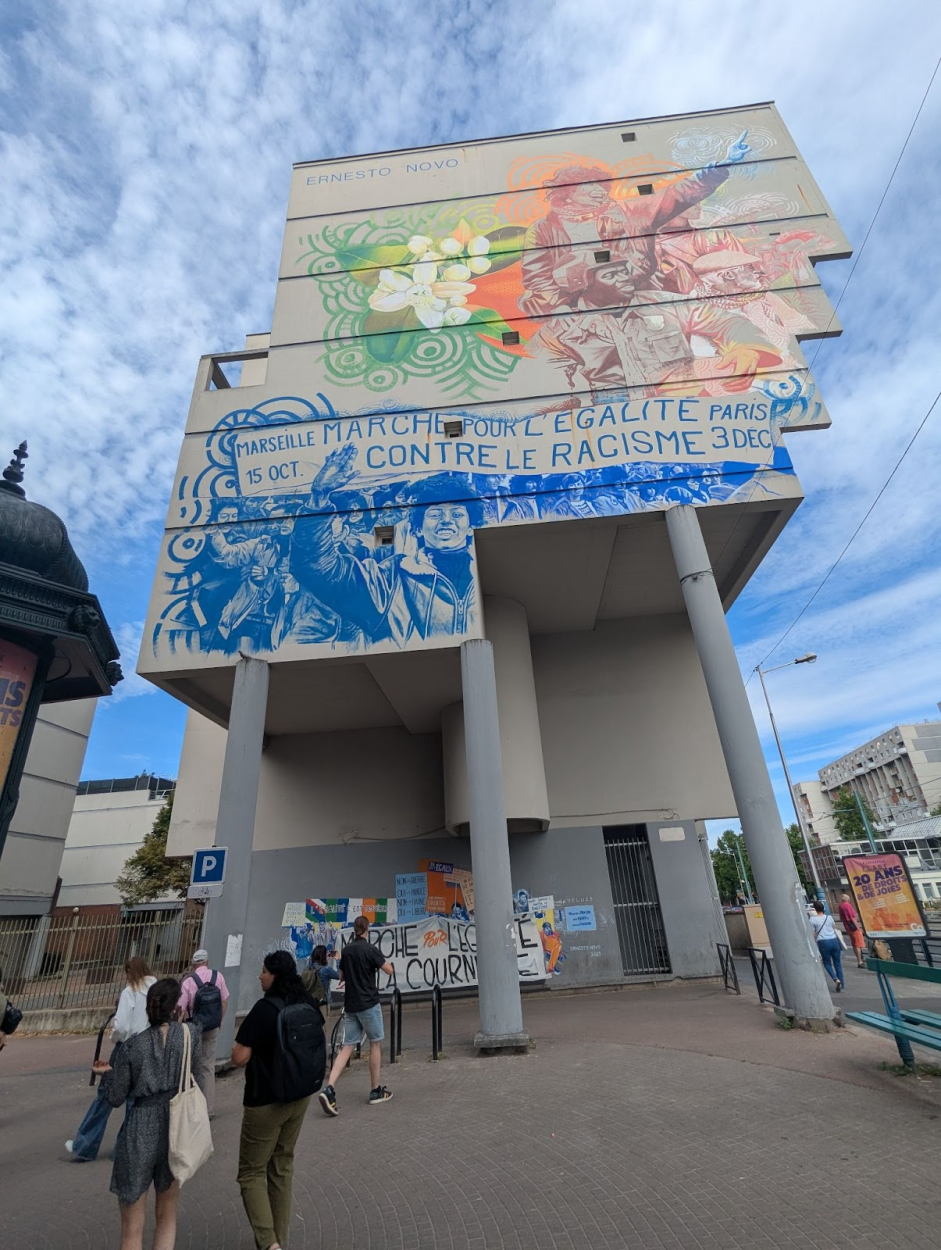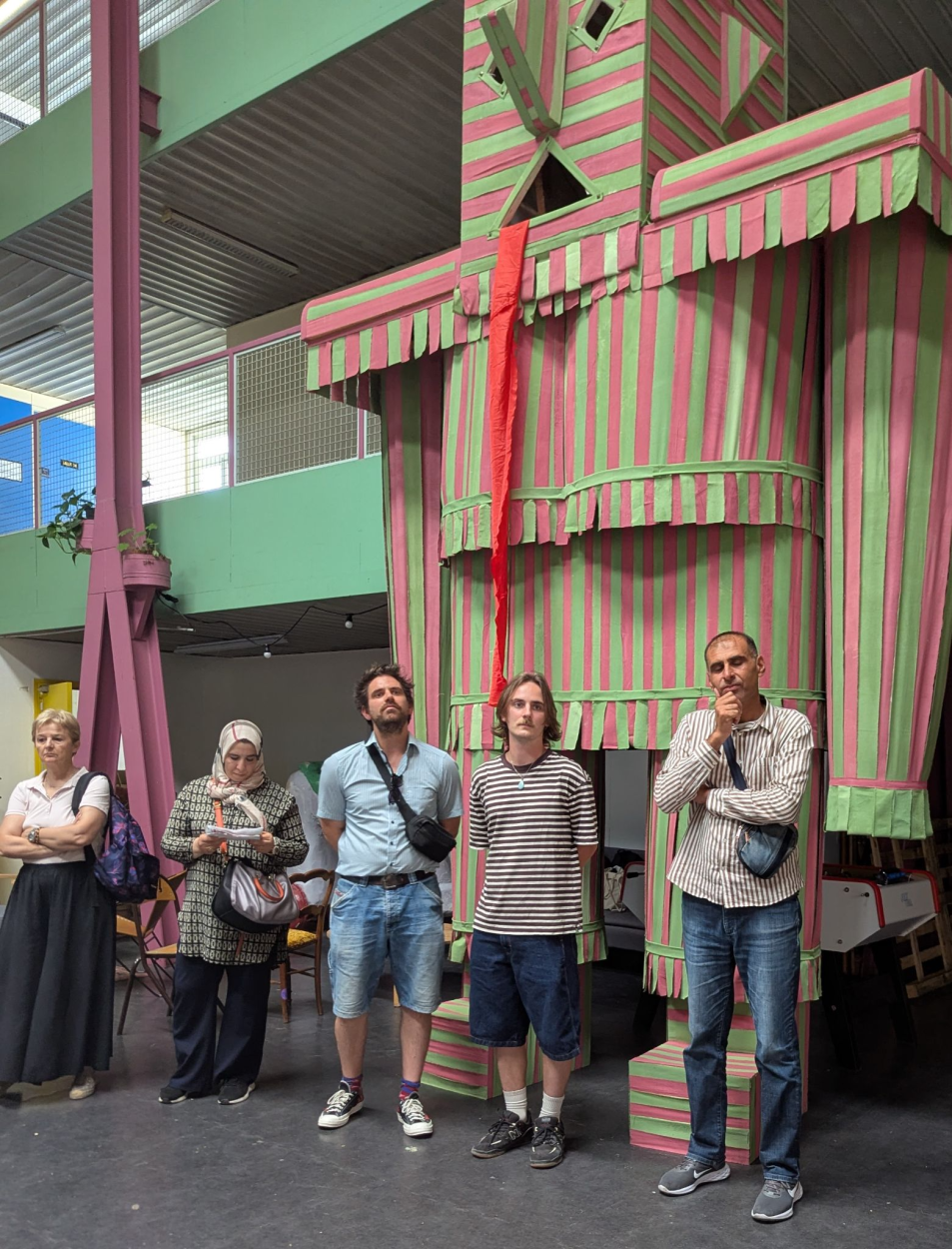Network Lead Hans Sakkers (Utrecht) stressed the importance of culture for WELDI — as a tool to build a shared place-based identity, to amplify unheard voices, and to challenge exclusionary monistic, nationalist and racist notions of culture that have gained traction in recent years.
Bobigny mayor Abdal Sadi highlighted how Seine-Saint-Denis is a “département du monde” — proud of being a place of arrival. One third of its population are immigrants, 160 languages are spoken, and more than 4,000 associations work on cooperation and global citizenship. Yet, this cultural richness contrasts with pressing social challenges. Although the département has long invested in social housing, today there are 115,000 unmet housing requests. And while it is the 7th largest contributor to France’s GDP, more than half of the jobs do not benefit the local population, leaving unemployment high. This makes professional integration a political priority.
Charlotte Lepri, Director for International Cooperation, stressed that values such as hospitality, solidarity, dialogue and tolerance are deeply rooted in Seine-Saint-Denis. Thanks to this shared commitment, the département has launched bold initiatives beyond official mandates, such as the Mission Égalité Diversité and two observatories — one on discrimination and equality, and one on violence against women.
The exchange presented a range of inspiring local initiatives that use culture as a driver of participation and intercultural interaction. The association Citoyenneté Jeunesse runs artistic programmes for unaccompanied minors, including street art and puppet theatre. In sports, the social welfare centres’ project Bienvenue au club connects refugees with local sports clubs and offers training support.. Meanwhile, the House of Languages and Cultures in Aubervilliers organises events that present cultural practice -such as new years celebrations- from an intercultural lens.
The dépertement is also keen to give visibility in public space to intercultural elements of its local history that are usually invisibilised, e.g. by commemorating the 40th anniversary of the anti-racist “March for Equality” in La Courneuve through a mural.
How to foster interaction through sports and culture?
A WELDI exchange then brought locals together with WELDI partners in collecting ideas on how local authorities can promote citizenship and interaction between migrants and established residents through culture and sport. Many participants emphasised that there was still a need to better adapt the cultural offer to migrants, e.g. by giving real protagonism to them, making better use of their grass-roots movements and giving space to oral expression and micro-histories.
Sport was widely recognised as a powerful tool for interaction. Good practices include helping newcomers find sports clubs, making extracurricular activities more accessible for migrant children through information and scholarships, and opening the sport offer to an intercultural public.- Cricket and cycling were mentioned as particularly effective: intercultural cricket teams have flourished in several cities, with cricket even integrated into Portugal’s school curriculum, while cycling initiatives promote sport, mobility and wellbeing at once.
Another line of discussion addressed the need to rethink cultural heritage. Participants stressed the importance of recognising migrant heritage — both material and immaterial — and valuing hybrid cultural expressions that emerge from migration. Anthropologist Delphine Leroy argued for moving beyond the belief of homogenous cultural groups, and instead focusing on transcultural change and “creole” practices born from encounters. The consensus was clear: in culture, as in wider society, we must move away from us vs. them thinking and pay more attention to the new transcultural elements that emerge through interaction.
Mixing culture with work and social impact: meeting PAM!
A site visit to PAM! Demonstrated how everyday cultural practice can be connected with inclusion to the labour market. Set in Pantin’s arrival neighbourhood Quatre Chemins with an unemployment rate of 45%, PAM’s radical premise is that everybody is employable and that jobs need to be tailored to the capacities of the people, and not the other way around. With Funding from the French social experimentation programme “Territoires Zéro Chômeur de Longue Durée” (Zero Long-Term Unemployed Areas), the initiative has grown to currently 80 workers covering a wide range of activities including gastronomy, sewing, woodwork, urban farming, digitalisation, cycling, deliveries and social support. Based on the site of a former school, PAM! has also become a formidable place of intercultural interaction, hospitality and mutual support. While the initiative currently benefits from state funding for each long-term unemployed person it integrates, its long-term aim is to become financially self-sustaining.
Changing the narrative: Seine-Saint-Denis’ Multitude festival
At the end of the meeting, WELDI partners could get to know for themselves a flagship initiative of Seine-Saint-Denis’ intercultural policies when they visited the département’s Biennale Intercultural Festival. This festival aims to represent Seine-Saint-Denis’ popular culture in all its diversity through gastronomy, music, urban sports and dance.
The second edition featured a European Pavilion, where WELDI partners joined discussions with the Intercultural Cities programme and the Sound of Diversity project — two other initiatives involving Seine-Saint-Denis. Together, they explored how cultural diversity can drive local development and counter misinformation.
President Stéphane Troussel explained to the practitioners how Multitude was “a statement, a counter-narrative in a context where some try to divide through identity politics. Here in Seine-Saint-Denis, with its 150 nationalities, we show that diversity is not a threat but a fertile ground for a vibrant, inclusive society.”




